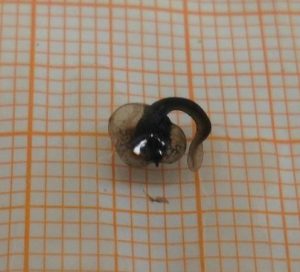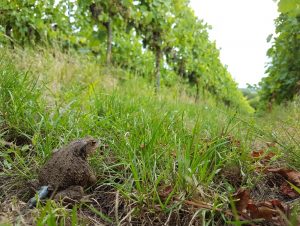In this post, Elena Adams is presenting her new project “The impact of pesticides on amphibians – Effects of environmentally relevant pesticide mixtures and formulations on German Anura” for which she received a doctoral scholarship of the German Federal Environmental Foundation.
Amphibians are the most endangered vertebrate class and around one third of all amphibian species are threatened. Amphibians differ from other vertebrates due to their biphasic life cycle, the poikilothermic way of life and specific skin parameters. These characteristics make them more susceptible to pollutants. Among the large variety of stressors, pesticides have been identified as a major factor contributing to the global amphibian decline. Amphibian populations are exposed to pesticides in their aquatic and terrestrial habitats. However, to date no specific risk assessment is carried out for amphibian species. This lack was recognized by EFSA and more basic data are needed to understand the risk of pesticides to amphibians.

Amphibians can be malformed after the exposure to sublethal pesticide concentrations (photo by E. Adams)
The new project will use aquatic and terrestrial laboratory and field studies to assess the impact of pesticides on German amphibian species. In a first step, aquatic acute toxicity data will be generated for multiple German amphibian species to compare the sensitivity differences among species for three environmentally relevant pesticides. Moreover, effects of formulation additives in pesticide products on aquatic and terrestrial stages of the European common frog will be analyzed. For this purpose lethal and sublethal endpoints in terms of oxidative stress and neurotransmitter inhibition will be investigated. Since most pesticides in the environment are present in mixtures we will investigate the sublethal effects of realistic concentrations of pesticide mixtures on the European common frog in a long-term field study. Oxidative stress, neurotransmitter inhibition, malformations, behavioral changes and potentially reproductive output will be analyzed as sublethal effects.
Our aim is to generate important data for the risk characterization of pesticides for German amphibians and to improve the protection of amphibians in agricultural landscapes. The project will start in January 2018 and we are looking forward to share our first insights soon!
More information about the project can be found here.
There are several possibilities to participate in this study in the scope of a master thesis or a research project:

